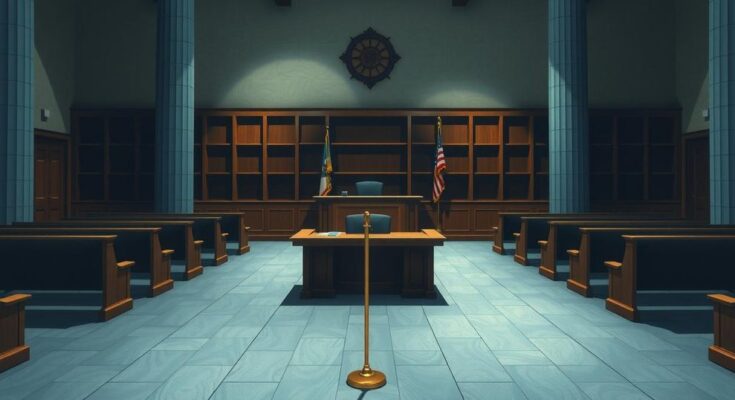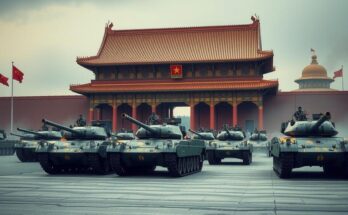Mahmoud Khalil, a Palestinian student activist from Columbia University, faces deportation after his arrest by the Trump administration amid protests regarding the Gaza conflict. His case highlights concerns over free speech and the legal process affecting permanent residents. Currently detained in Louisiana, he remains an emblem of tension between activism and national security policies.
Mahmoud Khalil, a significant participant in the 2024 Gaza war protests at Columbia University, is facing deportation initiated by the Trump administration. His case raises critical issues regarding free speech rights on college campuses and the legal ramifications surrounding the deportation process for permanent residents in the U.S. Following a recent court hearing, Mr. Khalil remains detained in Louisiana while discussions continue about his potential return to New York.
Originally from Syria, Mr. Khalil arrived in the U.S. in 2022 after completing a degree in computer science at the Lebanese American University and engaging in humanitarian work. He notably managed the Syria Chevening Programme for the British Embassy in Beirut. Khalil has a master’s degree from Columbia University and is currently married, with his spouse expecting a child.
His activism at Columbia made him a prominent figure in protests that sought to address U.S. foreign policy regarding Palestine. Despite accusations from pro-Israel activists who claim he led the Columbia University Apartheid Divest (CUAD) group, Mr. Khalil asserts that he merely acted as a spokesperson and negotiator during these events. The Department of Homeland Security has accused him of organizing activities aligned with Hamas, yet details remain murky and his lawyers have argued he has not supported any terrorist organization.
Khalil’s detention has ignited protests in New York, with demonstrations featuring considerable support from students and faculty. Civil liberties groups denounce this action as a threat to free speech, with the American Civil Liberties Union highlighting the unprecedented nature of this deportation attempt based on political advocacy. Meanwhile, the White House insists on its position against individuals it believes promote terrorism while residing in the U.S.
As the situation unfolds, Khalil’s case exemplifies the tension between national security and the rights of individuals advocating for political causes. Legal experts express concern over the implications this may have on the freedom of expression for non-citizens, marking Khalil’s situation as potentially significant historically and legally.
In summary, Mahmoud Khalil’s case represents a confluence of pressing issues regarding free speech, national security, and the rights of non-citizens within the United States. His detention and threat of deportation prompt widespread debate over the implications for student activism and civil liberties. As protests continue to grow in response to his situation, the outcome of his case may influence future interactions between governmental authorities and expressions of political dissent.
Original Source: www.bbc.com




